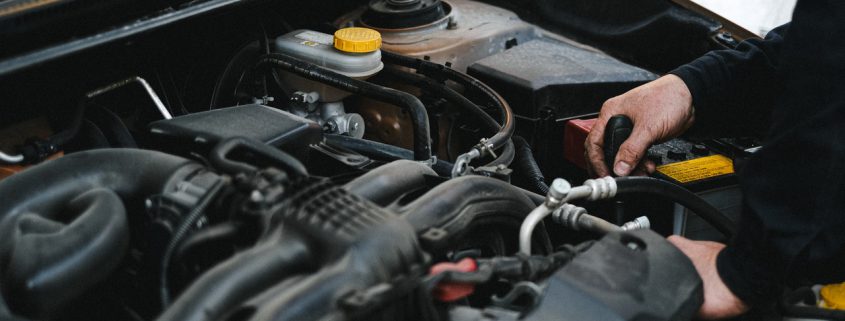Car Batteries: Everything You Need to Know
 Your car’s battery serves as the vehicle’s electrical heart. It is responsible for supplying power so that other components will come to life. But how does a car battery really work?
Your car’s battery serves as the vehicle’s electrical heart. It is responsible for supplying power so that other components will come to life. But how does a car battery really work?
Below, we discussed the facts you need to know about car batteries. Read on to know more about this car component.
How do car batteries work?
There’s a lot that happens to a car battery when you turn the key and start the engine.
Once your battery is engaged, it will convert chemical energy (fuel) into electrical energy. Most car batteries in the market use a lead-acid chemical reaction to keep things running.
Inside a standard car battery, there are six cells. Each of these cells can produce 2 volts, making car batteries 12-volt types.
Moreover, the plates inside a cell are submerged in sulfuric acid. This acid will initiate the chemical reaction, leading to the production of lead sulfate and ions.
This course of chemical reaction will produce electrons. Such electricity will be the power used to start the engine, play the radio, and turn on the lights. All of these processes happen in a split second and a turn of a key.
How long do car batteries last?
Car batteries usually last for 5 to 7 years. For some car models, quality batteries can last for up to 10 years.
Take note that the lifespan of your car’s battery depends on a variety of factors. Some of these are heat, time, and vibration.
Also, just because you don’t drive your car often doesn’t mean your battery will last longer. In fact, idle car batteries will lose their charge faster than regularly used ones.
It’s important to check your car battery’s voltage regularly to see if it’s still functioning well. You should also clean your battery to prevent debris buildup.
When should I replace my car battery?
Car battery replacements are necessary once you notice the following signs:
The check engine light can indicate a myriad of problems in your vehicle. This could potentially be a faulty battery.
To confirm your suspicion, you should check the battery’s voltage. If it turns out low, you may need a replacement, especially if the battery is older than 3 years.
Also, issues with starting the engine point to a defective battery. Over time, the components of the battery will start to degrade, which will result in lower electrical output.
Moreover, if your battery or car’s hood is smelling like rotten eggs, it might be time for a battery replacement. The smell indicates a battery acid leak due to damages or old age.
Any changes in the battery’s shape are also a sign for a replacement. It indicates serious wear and tear, which means that the battery can no longer produce enough power.
Conclusion
Your car’s battery powers up your ride. Still, proper maintenance is necessary to ensure that it will supply optimal power to your vehicle.
After a few years, your battery will also need a replacement. This is to keep your car’s smooth run and to prevent damages to other components.


